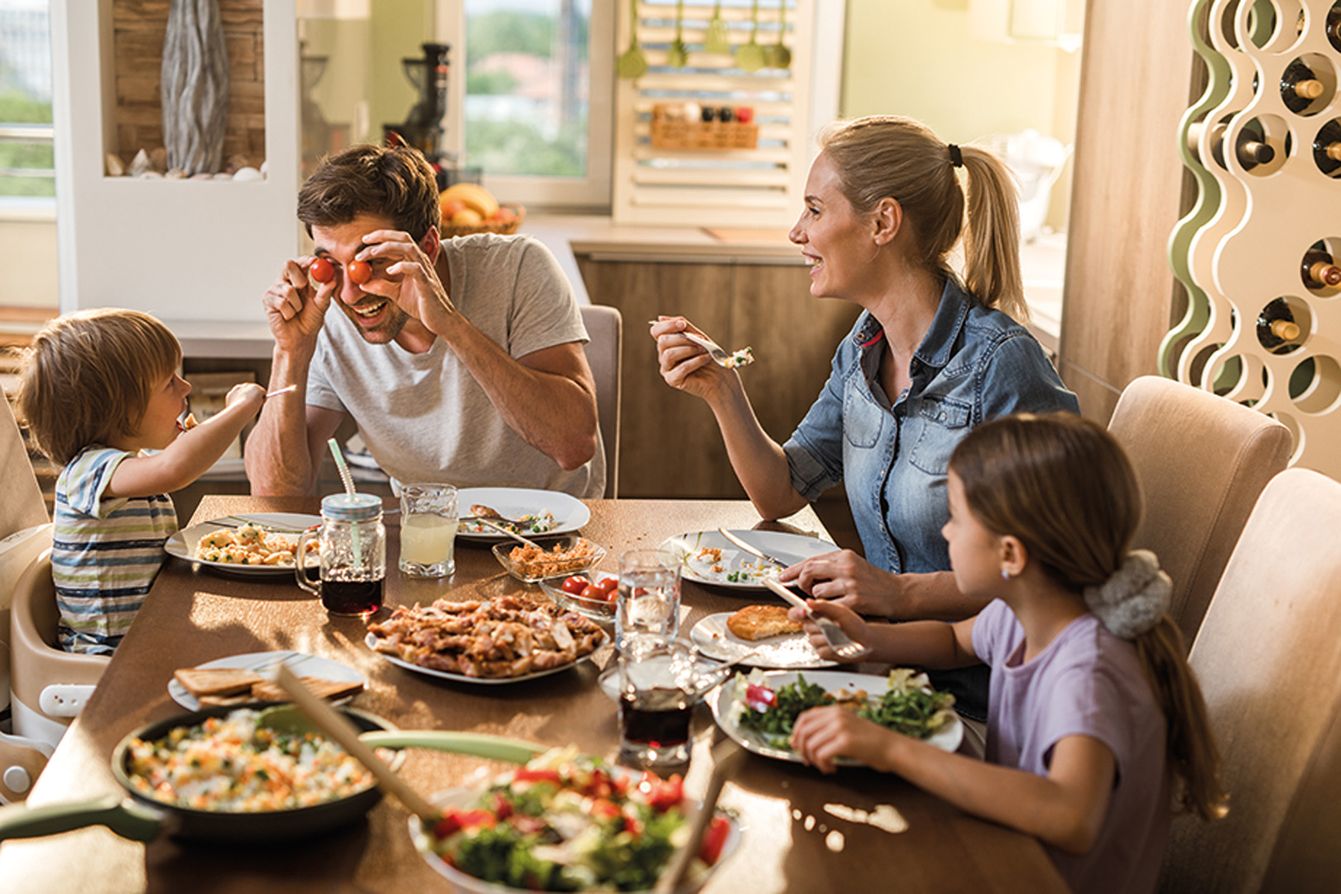Eating meals together as a family has wonderful benefits. Frequent regular family meals (3–7 times a week) reflect a sense of family connection and priorities. It says, “We are important!”
Not a lot is known about exactly why family meals create benefits, but it is suggested that it is due to empathy, family cohesion, family attitudes and communication skills. The time together also generates feelings of closeness and comfort, providing a unique context to connect with your child.
Although family meal time on its own is not a magic bullet for emotional health, evidence suggests that children who take part in family meals display less delinquency, greater academic achievement, improved psychological wellbeing, more positive family interactions and eat healthier foods.
Set a goal to have a family meal at least three times per week, even if some members can’t be there occasionally, due to work, sport or other activities. The habit communicates that time together is important. It’s OK if some children prefer to just listen, be present and don’t want to chat every time. It is the being together that counts.
It’s equally OK if there is bickering or irritability some days. Families aren’t robots. These instances help parents to model saying sorry, how to empathise with the person who has had a bad day or to teach respectful communication.
Here are some dinner table conversation starter ideas:
- “List one good thing and one not very good thing that happened in your day.” It is vital that adults share some of their struggles as teens, in particular, often imagine that adults don’t have inner conflict.
- “Could we think of ways that we might help Dad deal with that situation at work?” Let children help you brainstorm. Keep it age appropriate and don’t scoff at their suggestions.
- “How did [that issue] make you feel today?”
- “What did you enjoy most about your sport/flute/event this week?”
- “Is there someone you are worried about at the moment?”
Adapted from Collett’s book, They’ll Be Okay: 15 Conversations to Help Your Child Through Troubled Times (Hachette, 2019).
How helpful was this article?
Click on a star to rate it!
4 / 5. 1
Be the first to rate this post!
Collett Smart
Related posts
Subscribe
Receive personalised articles from experts and wellness inspiration weekly!


